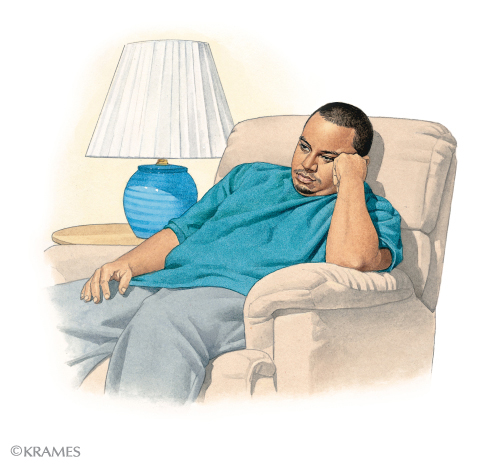Recognizing Suicide Warning Signs in Yourself

People who are thinking about suicide may not know they are depressed. Certain thoughts, feelings, and actions can be signals that let you know you may need help. The best thing you can do is watch for signs that you may be at risk. Then, ask for help. You can talk with your regular healthcare provider or get help from a mental health provider.
Depression
Depression is a treatable illness, just like diabetes or heart disease. And like those illnesses, depression is not something that you can just "snap out of." To feel better, treatment is needed before depression gets to a point that it can endanger your life. To know if depression is causing you to feel like ending your life, ask yourself:
-
Do I feel worthless, guilty, helpless, or hopeless?
-
Have I been feeling sad, down, or blue on most days?
-
Have I lost interest in my work or people I used to enjoy?
-
Do I have trouble sleeping or do I sleep too much?
-
Do I eat more or less than normal?
-
Do I feel tired, weak, and low on energy?
-
Do I feel restless and unable to sit still?
-
Do I have trouble thinking or making choices?
-
Do I cry more than normal?
-
Do I feel life isn't worth living?
Warning signs for suicide
Call your healthcare provider or get help right away if you have any of the warning signs below. You can also call a mental health clinic or the suicide prevention lifeline for help and support. Warning signs for suicide include:
-
Thinking often about taking your life
-
Planning how you may attempt it
-
Talking or writing about suicide
-
Feeling that death is the only solution to your problems
-
Feeling a pressing need to make out your will or arrange your funeral
-
Giving away things you own
-
Taking part in risky behaviors, such as having sex with someone you don't know, or drinking and driving
-
Buying a lethal weapon, such as a gun, or hoarding medicines that could be used in an overdose
What you can do to keep yourself safe
If you find that you are having suicidal thoughts or showing warning signs of suicide, speak with a loved one or a mental health professional about what steps you can take to keep your environment safe in the event of a crisis. Some tips are listed below:
· Ask a loved one to remove any guns or ammunition from the home. If removal isn’t possible, ask a loved one to lock guns and ammunition away separately and in a place that you can’t reach. Ask your loved one to keep the key/code to the locks used for storing any guns or ammunition.
· Ask a loved one to lock away or remove any extra medication within the home
· Consider limiting access to any drugs or alcohol within the home. When in crisis, alcohol or drugs can greatly increase the likelihood of making impulsive decisions that could have fatal consequences.
· Ask a loved one to lock away or remove any sharp objects within the home.
· Set up scheduled check-ins throughout the day with multiple loved ones. This will enable independence while also alerting others when you may be in need of support.
Call or text 988
If you are in immediate risk of harming yourself or others, call 988.
When you call or text 988, you will be connected to trained crisis counselors. An online chat option is also available. Lifeline is free and available 24/7.
To learn more
For more information about depression and suicide prevention: